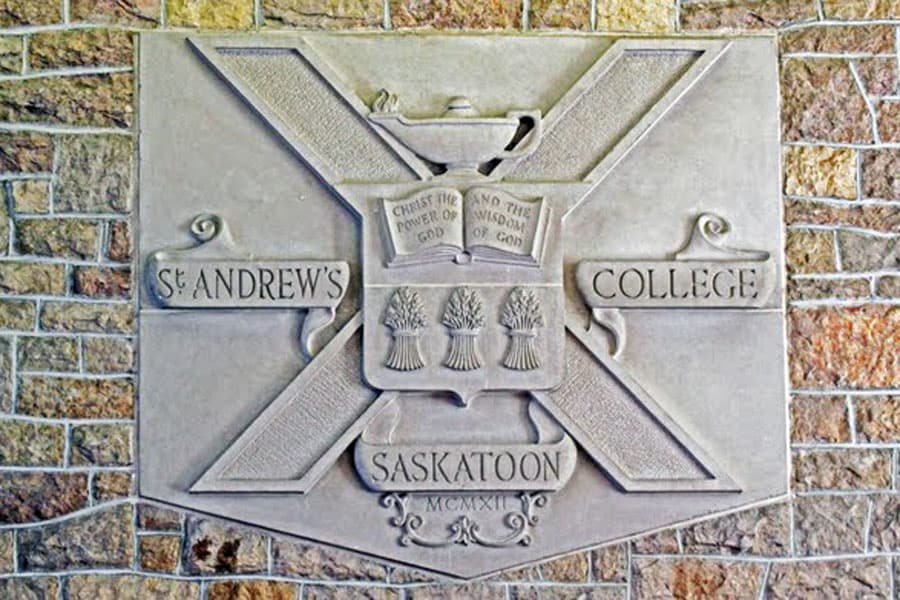The first of two town hall meetings to share information about the college’s future took place March 16
Mar 24, 2021
Sustainability
One of the key areas of discussion has been around the question of sustainability. It feels important to highlight what this has meant from the perspective of the college and its relationship to its core commitment as an academic graduate institution.
For at least the last five years, as demonstrated by reporting from the college’s accrediting body (the Association of Theological Schools) our academic enterprise has not been sustainable. In other words, the student to faculty ratio and the cost of preparing students has been beyond the means of the college.
Prior to this more recent financial crisis, however, the college was in a place to transition into a more affordable model. With the advent of the events that have precipitated the acceleration of the college’s strategic plan, financial resources must now be deployed to a) ensure an equitable end to the current program in 28-months; b) ensure that the college’s new program after 2023 is affordable and structured in a way to be responsive and positioned to grow student enrollment; and, c) recognise that after 2023 financial reserves will be significantly decreased.
Key Questions
If the new academic program still includes the present degree options, how will it differ significantly from what St. Andrew’s already offers?
The direction set by the Board will create an intensive-hybrid model.1 This new program will be developed in collaboration with the Saskatoon Theological Union (STU) partners. The “newness” of the program will involve a greater availability of distance learning options, an augmented program of life-long learning and community education which reaches into new recruitment territory, and much closer curricular alignment with our STU partners.
How, and with whom, will the new academic program be created?
The Board has approved, in principle, the establishment of an ad hoc committee to lead this work. The team will be responsible for consultation, assessment, validation, and recommendation. This work will occur internally within the college’s community and The United Church of Canada (UCCan) partners and externally with the STU. The commitment to this shared programming will require approximately a year to explore and design. Furthermore, this time of design and planning will include assessing existing academic programs and degrees, in order to move them forward after 2023.
Is it possible to re-start this process, inviting the current faculty to be part of the development of the new academic program, and asking them to come up with an innovative way to live in a vastly reduced budget?
No, the process will not be re-started. However, the college will be inviting the current faculty to offer input into the process to redesign the academic program, which will begin in the fall of 2023. Owing to the complex nature of these academic changes, it is important for both the college and faculty to appropriately navigate how labour practices and requirements will affect such input.
What is the current STU agreement, and how is it evolving?
Currently the STU partners are working on the partnership process to move forward. These details will be included in the college’s establishment of an ad hoc committee (see above). This team will ensure that the college’s responsibility to the community, existing programs, UCCan and students are balanced with the collaborative nature of designing a new academic relationship within the STU.2
Is it true that the Board hopes that some of the faculty will be retained, and that internal candidates will be offered the new positions first?
No. The Board hopes current faculty will have the first opportunity to apply for new positions. Designing the new academic program will take approximately a year. At that time, new job descriptions will be developed. These new positions will likely look significantly different than current job descriptions, as the program itself will be different.
On behalf of the Board of Regents,
Rev. Doug Neufeld, Board Chair
[email protected]
Dea. Dr. Richard Manley-Tannis, Principal
[email protected]
- Intensive refers to the learning model. Rather than a semester course spread over the course of months, intensive learning occurs over a shorter time, which can range between 5-10 days. Students, during an intensive, can study from 4-6 hours per day. Hybrid refers to the ability to offer programming that includes learners both in person and remotely at the same time.
- One of the collaborative endeavours that the STU partners have created is a draft covenant, which we recognise is a living document that brings forth the shared commitment to this new endeavour.
A second Town Hall will be held on Tuesday, April 13, 2021 at 4:00 p.m. (SK time). If you are interested in attending, please confirm your attendance with Melanie ([email protected]) by 9 a.m. that morning, and send any questions you may have. Zoom information will follow prior to the town hall.
More information can be found here:
https://standrews.ca/standrews/college_news/towardstomorrow.php
https://standrews.ca/standrews/college_news/college-plans-program-realignment-to-meet-challenges.php

